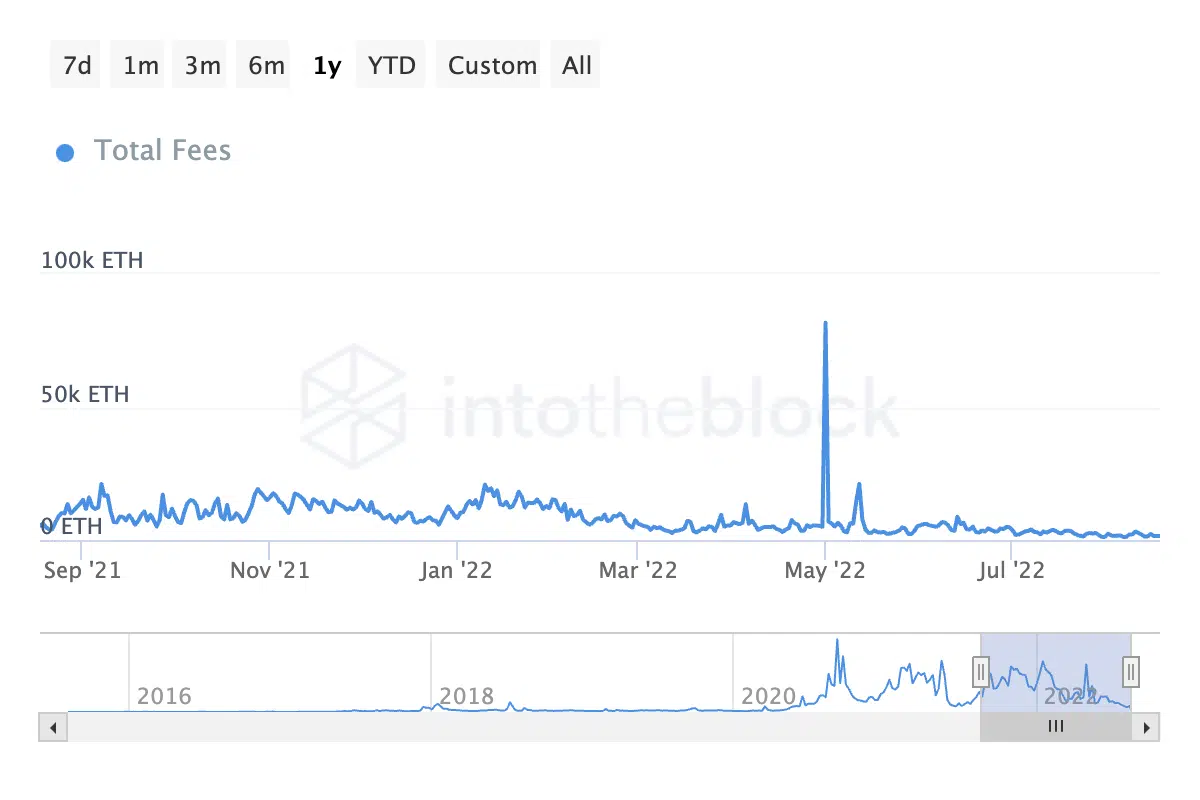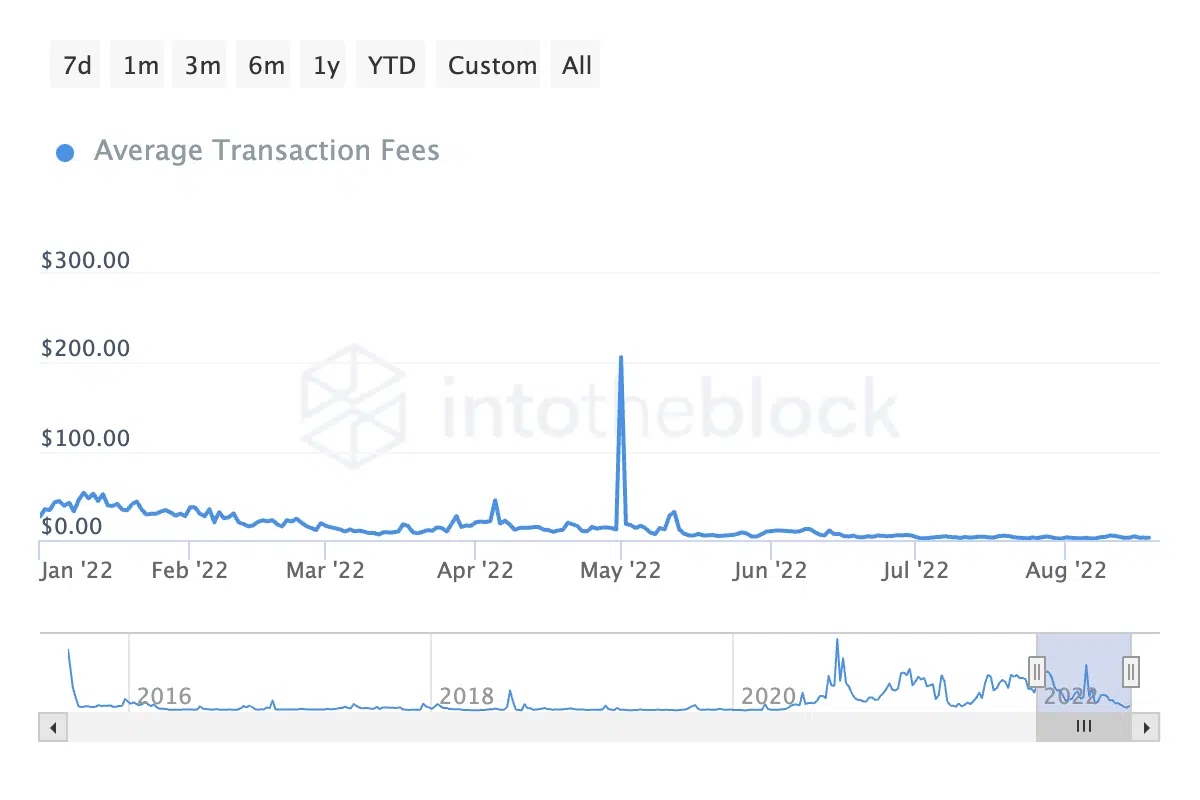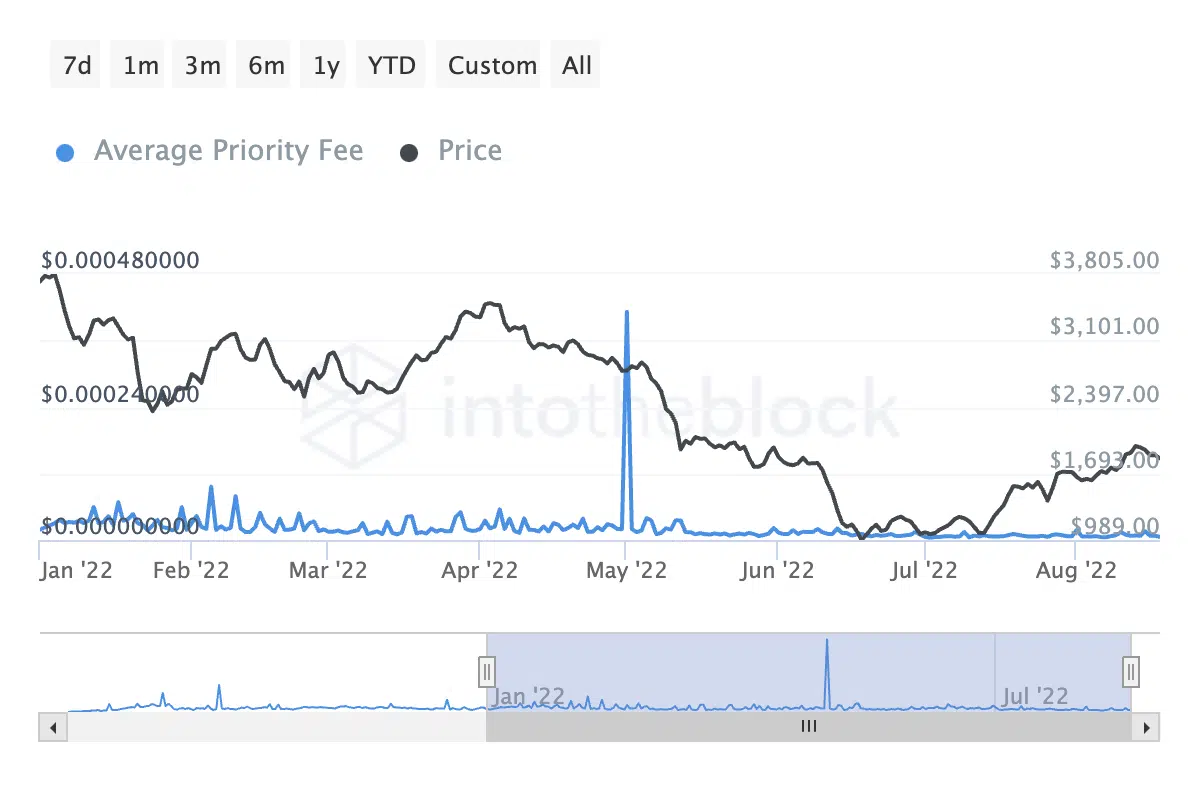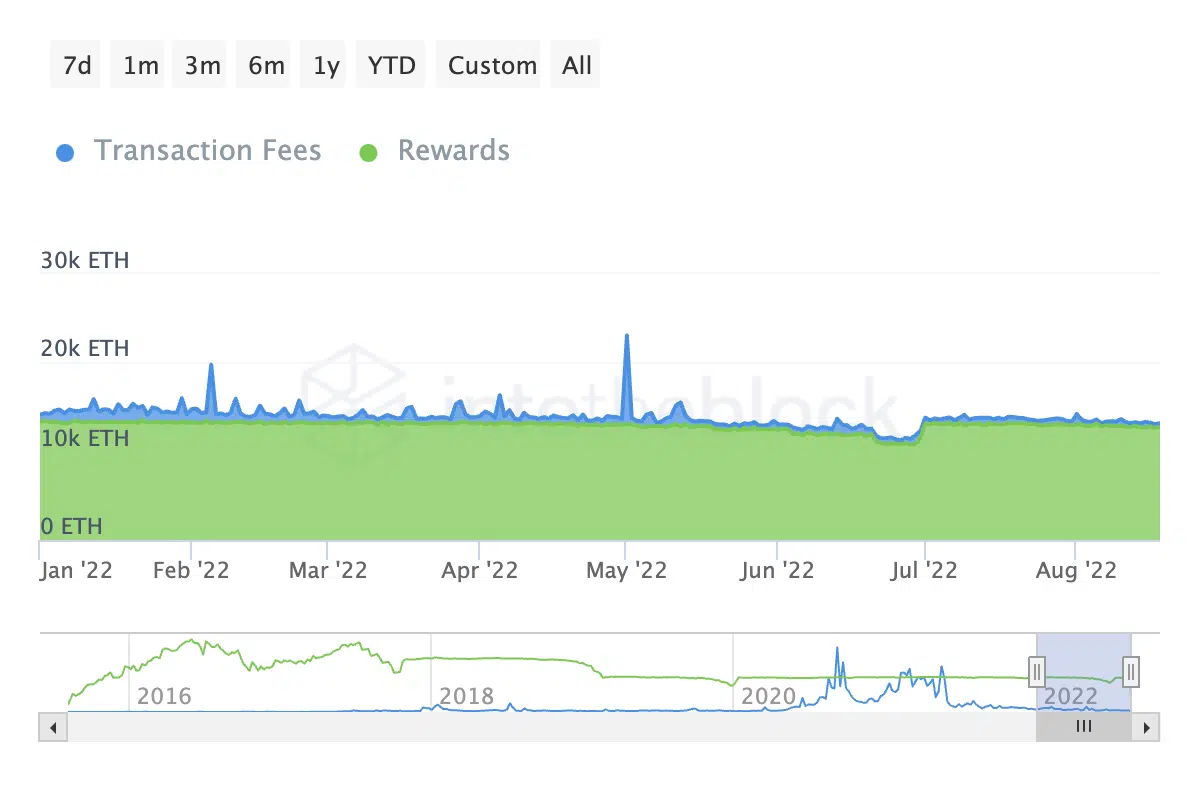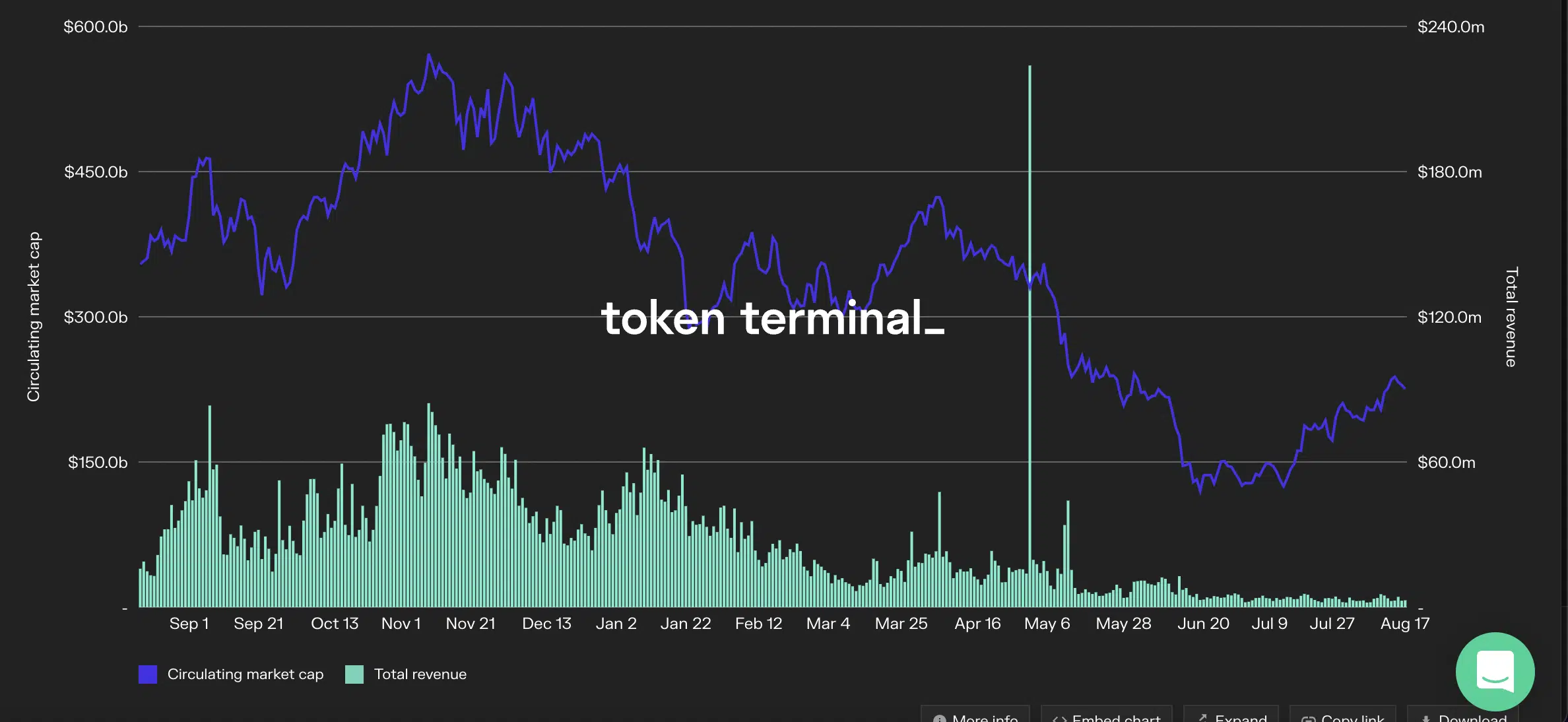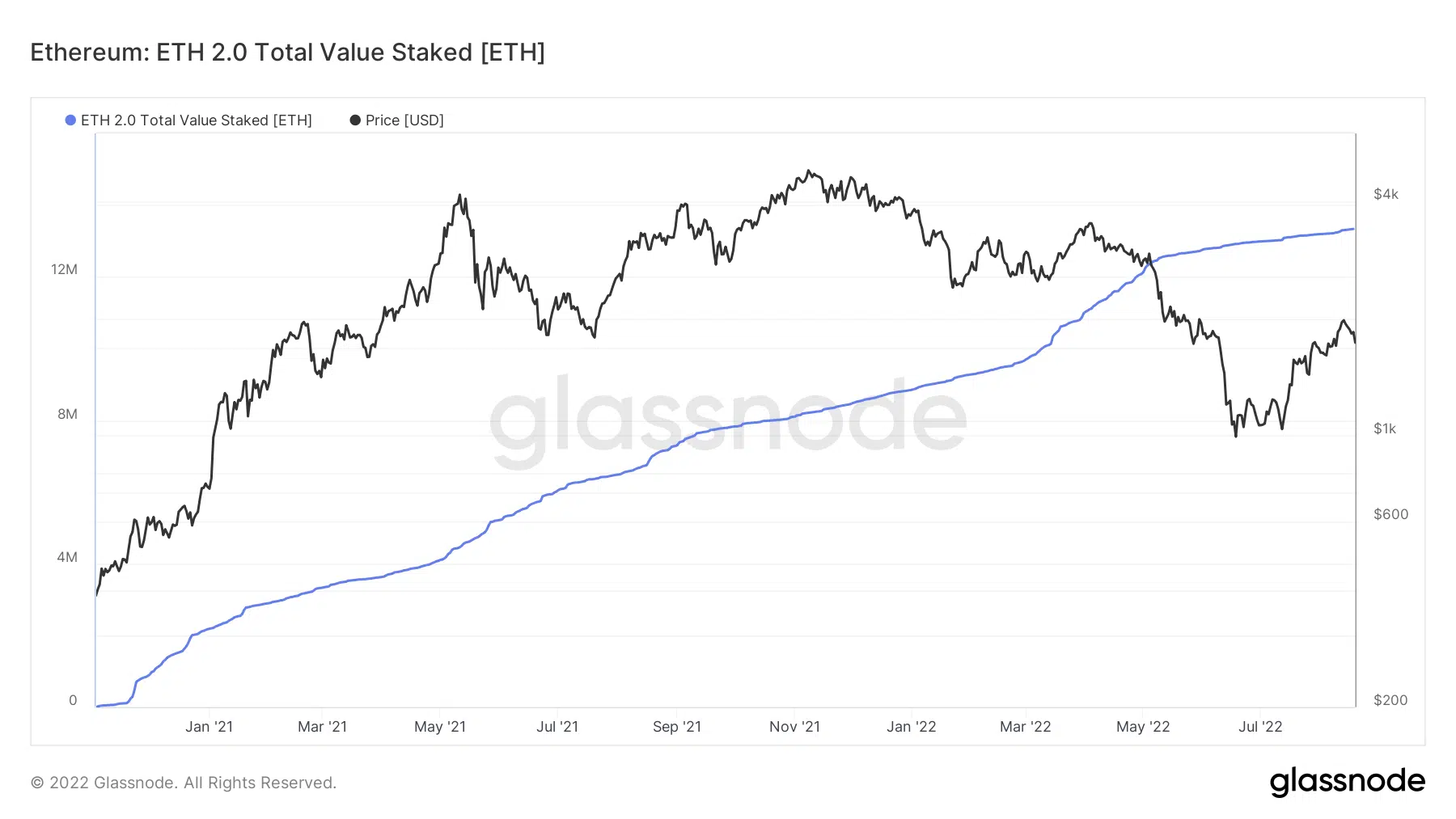Ethereum: Assessing reasons behind decline in daily revenue on network
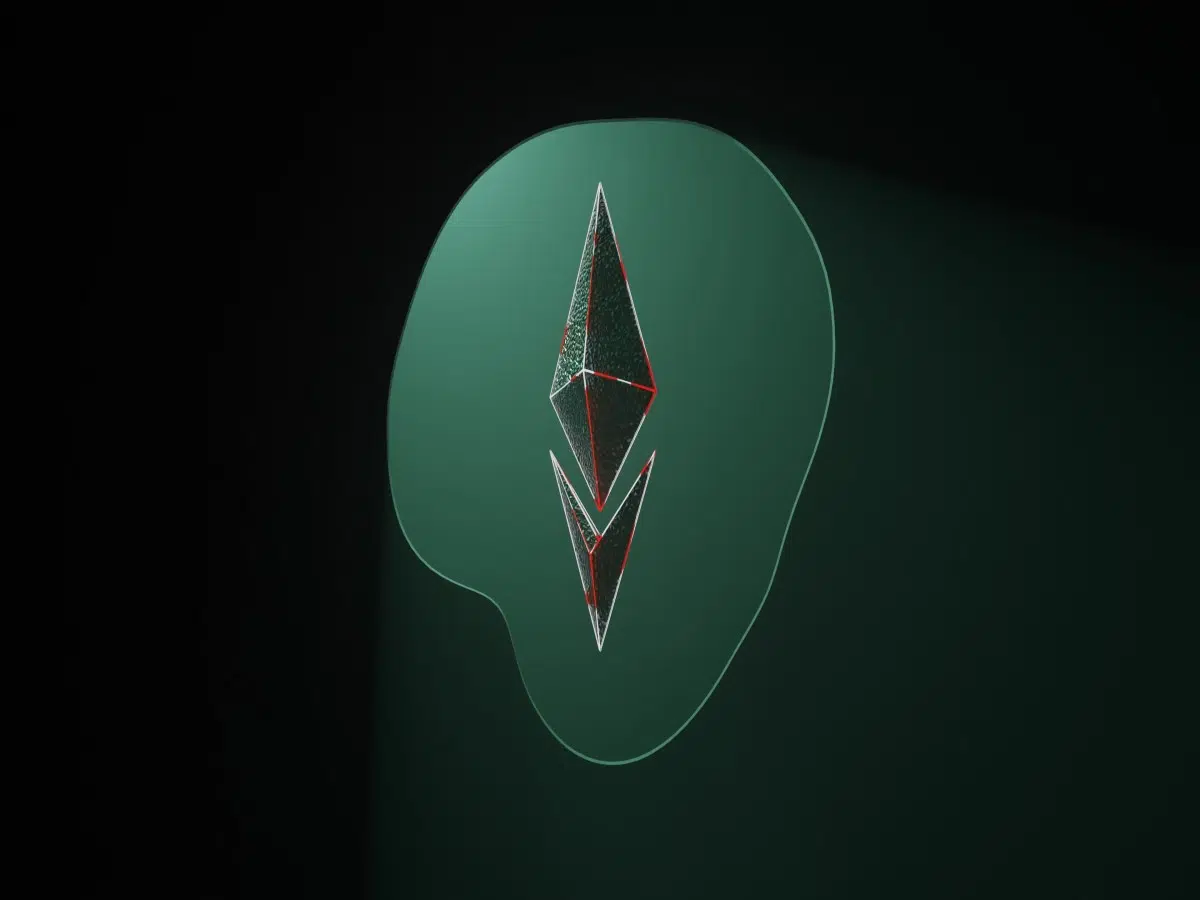
Fees paid to process transactions on the Ethereum [ETH] network are at a one-year low, data from IntoTheBlock revealed. This can be primarily attributed to the movement of transactions. These were previously executed on mainnet Ethereum to Layer 2 scaling solutions (L2s).
At the time of writing, the total fees paid to use the Ethereum network stood at 1,490 ETH. A year ago, this was 5,280 ETH. After registering a high of 81,750 ETH as total fees on 1 May, Ethereum saw a decline in fees paid.
Deriving its security from Mainnet Ethereum, L2 scaling solutions are designed to aggregate many smaller transactions and submit them to the Ethereum Mainnet (Layer 1).
With L2s, network congestion on mainnet Ethereum is reduced, and transaction throughput is enhanced.
Congestion on mainnet Ethereum leads to increased gas fees for processing transactions. Thanks to L2s, transactions are also rolled into a single transaction to mainnet Ethereum. Thereby, reducing gas fees for users.
Although offering benefits, in what ways have the activities of L2s affected the Ethereum network since the beginning of the year?
Year-to-date analysis of fees on mainnet Ethereum
Apart from the decline in total fees paid to use the Ethereum network daily, the average fees paid per transaction has also declined significantly.
At press time, on average, it costs $2.55 to execute a transaction of Ethereum mainnet. On a Year-to-Date (YTD) basis, the average fees paid per transaction has declined by over 90%. As of 1 January, this number stood at $26.39.
To process transactions faster on Ethereum, miners are incentivized through a tip function to prioritize transaction order.
This is referred to as the average priority fee. As more activity moved to L2s, less of these fees have been paid out since January.
Furthermore, at the time of writing, the average priority fee on Ethereum stood at $0.000005556, a 70% decline from the $0.000018631 paid as the average priority fee to miners at the beginning of the year.
And the miners?
Miner rewards on mainnet Ethereum have consistently declined since the beginning of the year.
This is made up of the transaction fees and the block subsidy. According to IntoTheBlock, transaction fees refer to the dynamic fee charged on a blockchain transfer, while the block subsidy is the reward miners earn from the issuance of the blockchain’s native token.
Both of these have dropped by 89% and 4%, respectively, since the year started.
In addition to a decline in miner rewards, data from Token Terminal revealed that in the last year, the Ethereum network had posted around $20 million in losses per day.
Furthermore, daily revenue on the network has suffered a steep decline since the beginning of this year.
With the Merge just a few weeks away, most of the focus has been placed on staking ETH in anticipation of the network’s transition into a proof-of-stake consensus mechanism. At press time, data from Glassnode showed that 13,334,442 ETH had been staked so far.

